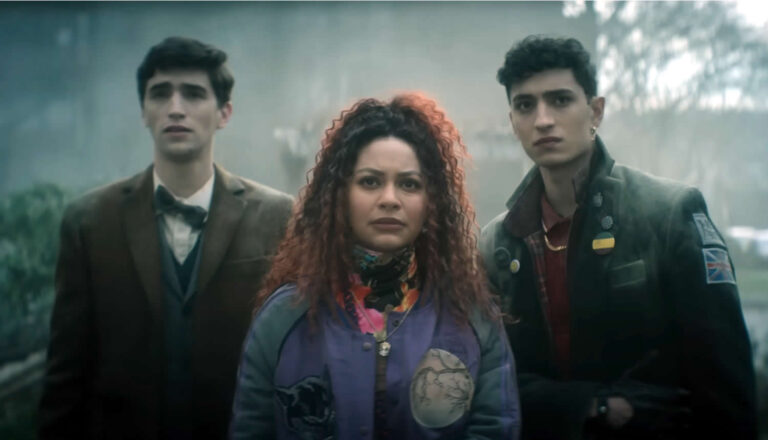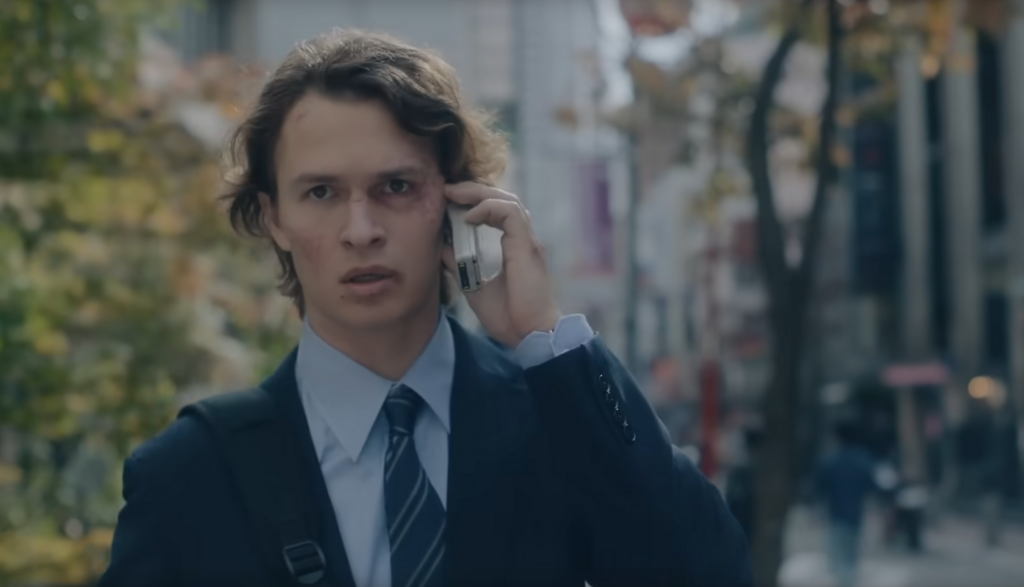
Dead Boy Detectives
Dead Boy Detectives targets teens in style and story. But it comes with very adult, problematic content.

Jake Adelstein is a stranger in a strange land.
At 19, he left the University of Missouri to study at Tokyo’s Sophia University. Afterward, he studied and studied to pass the qualifying exam for Meicho Shimbun—the paper with the largest circulation not just in Japan, but in the world. He’s interested in becoming a Japanese crime reporter after his father got him interested in forensic evidence.
And why does Jake want to be the organization’s first foreigner to work in its Japanese-language section? Well, he’s simply interested in Japan, and he wants to expose a bit of the darkness that hides in the Land of the Rising Sun.
It isn’t long until he discovers a a big patch of darkness—the stabbed body of a man who was heavily indebted to a loan company which has strangely vacated its offices. But when he tries to report on the man’s murder, he runs into an issue: The paper won’t let him.
“Did the cops tell you he was murdered?” Jake’s boss asks. “He was not ‘murdered’ until they say so.”
Jake’s told to just write whatever the cops say and to stop looking deeper into it. But after he watches another man commit suicide—setting himself on fire with matches that bear the same loan company logo—Jake knows that he can’t just let the story go. He needs to shed light on the truth and be the societal watchdog he has a duty to be.
But this investigation will go deeper than even Jake expects it to go, even including top government officials with dirty laundry to hide.
And it won’t be long until he finds out what the yakuza do to watchdogs who go sniffing around where they shouldn’t.
Tokyo Vice is based on the real Jake Adelstein’s memoir Tokyo Vice: An American Reporter on the Police Beat in Japan. In the book, Adelstein writes about his time in Japan while working the police beat for Yomiuri Shinbun, one of Japan’s largest newspapers. During that time, Adelstein writes about how he received death threats after publishing an expose on Tadamasa Goto (a now-retired yakuza crime boss). In the expose, Adelstein wrote about how Goto had received a special visa from the FBI for a liver transplant in Los Angeles in exchange for turning in other yakuza. (According to the New Yorker, 186 Americans in the Los Angeles area died while waiting for a transplant that same year.)
The New Yorker writes that Goto later published an autobiography which referenced Adelstein, and Adelstein hired a lawyer to sue Goto’s publisher. Soon after, the lawyer “was found dead in a room with a cup of sleeping pills, a set of box cutters, a glass of wine, and a shallow cut on his wrist…most Japanese newspapers reported the death as a suicide.” Adelstein currently lives in Tokyo under police protection.
Tokyo Vice contains a lot of the same sort of content. We see mutilated dead bodies, scantily clad women and lots of smoking and alcohol. Additionally, it’s common to hear harsh cursing, including the f-word and s-word. Within this story centered on criminal reporting and a gang war, brutal beatings mar the screen. One scene contains a clothed colonoscopy procedure, and another plot point revolves around a panty thief.
And through it all, Jake will try to reveal the truth that so many of his superiors seem to want to keep buried—no matter what the cost may be.
Jake obtains a video tape which reveals a prominent government official’s involvement with the yakuza. The reporter begins working on a story—but not everyone is willing to let that story go to print.
A woman on the tape is beaten and kicked to death by a man, with the video camera recording it all. A man is found dead with a needle in his arm. Another man is found bloodied and tied up in the trunk of a car. We see someone’s stitched up and bleeding wounds. We hear a reference to suicide. A man threatens to cut off another man’s finger. Thugs intimidate hospital workers.
A woman stands in her underwear. We hear a reference to prostitution.
Two women pray at a shrine.
People drink alcohol and smoke. A woman is intoxicated.
The f-word is used 15 times, and the s-word is used five. We also hear one use of “b–ch” and “h—” each. God’s name is used in vain once.
After being hired onto the Meicho Shimbun, Jake discovers a potential connection between a dead body and the yakuza and writes about it. However, after Jake’s superiors refuse to allow him to publish the piece, he takes matters into his own hands.
We see dozens of instances of characters, including Jake, smoking. Jake goes to a nightclub rave, and people are seen drinking and dancing with beer bottles in hand. Jake and his coworkers are celebrated with alcoholic beverages. Jake offers to buy Miyamoto, a police officer, a drink. Jake also drinks with Samantha, an American expat hostess. Jake bribes another man with a bag of alcoholic beverages.
Samantha wears a low-cut dress that reveals her cleavage. Miyamoto jokes that Jake wants to be tied down and have weird stuff done to him. Miyamoto orders and drinks champagne.
Jake and Miyamoto talk in a strip club, and we see plenty of women dancing on stage in their underwear, as well as a waitress who serves people in her underwear. Another woman dances nude behind a screen which barely covers vital parts. At the club, women sensually grab at Miyamoto as he speaks. A man is briefly seen wearing only cloth wrapped around his groin area.
A man threatens to kill Jake and his family if he publishes a story. A body is found of a man who has been stabbed with a knife and has bloody cuts on his hands. A man slams Jake into a wall. Another man is seen with blood dripping from his tattoos. An older man pours gasoline on himself. He lights himself on fire and burns to death, and we see his charred body as police assess the scene.
One Japanese man makes references to racial stereotypes about Jewish people (as Jake is Jewish). A coworker tells Jake that people believe he’s an Israeli spy, and because of that, many of them call him “Mossad” (the name of the national intelligence agency of Israel).
The f-word is used twice, and the s-word is used three times. “H—” is used four times, and “a–” is used once. We also hear “p-ss” once, and one man uses a crude word to refer to breasts. Jake is often called a “foreigner” derogatorily.


Kennedy Unthank studied journalism at the University of Missouri. He knew he wanted to write for a living when he won a contest for “best fantasy story” while in the 4th grade. What he didn’t know at the time, however, was that he was the only person to submit a story. Regardless, the seed was planted. Kennedy collects and plays board games in his free time, and he loves to talk about biblical apologetics. He thinks the ending of Lost “wasn’t that bad.”

Dead Boy Detectives targets teens in style and story. But it comes with very adult, problematic content.

An elf mage contemplates on connection and regret as she watches her human friends grow old and pass away.